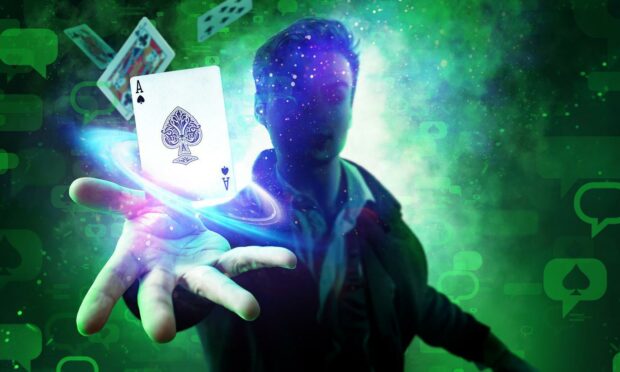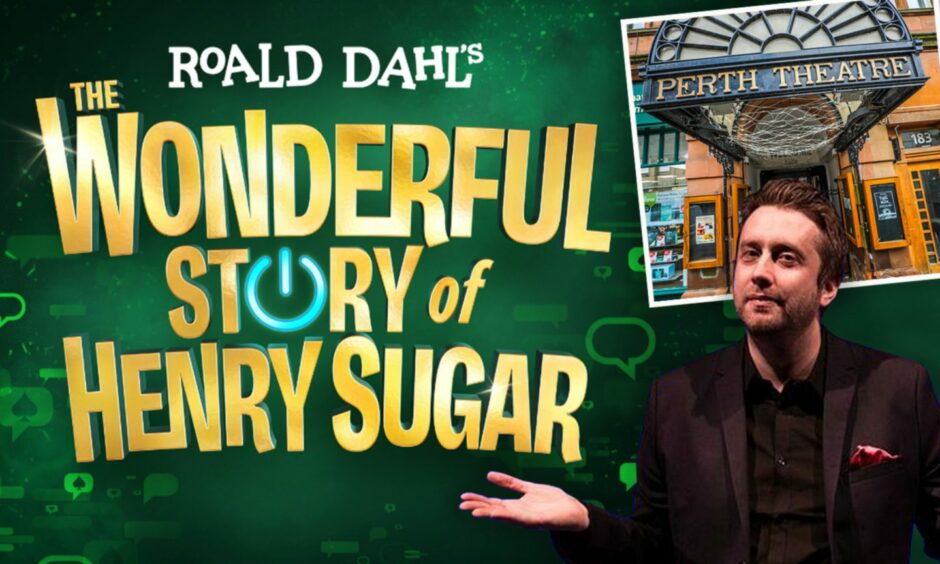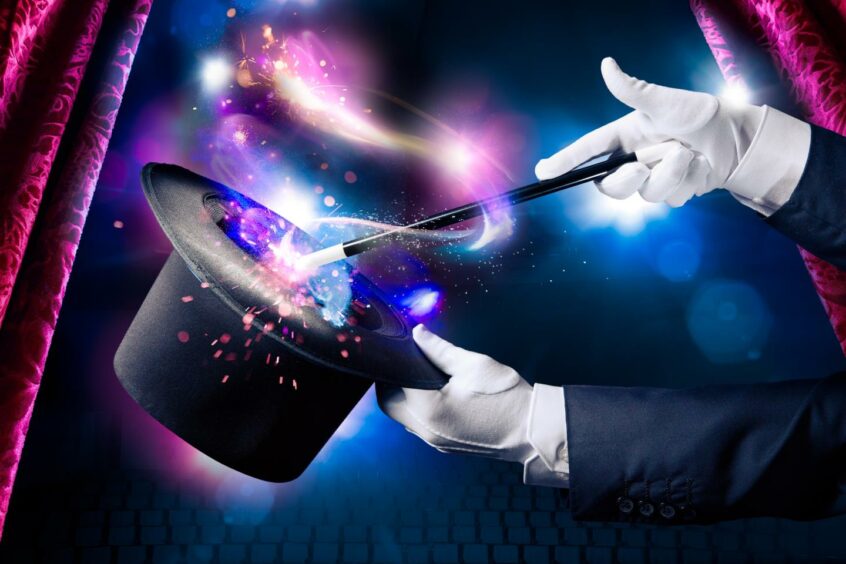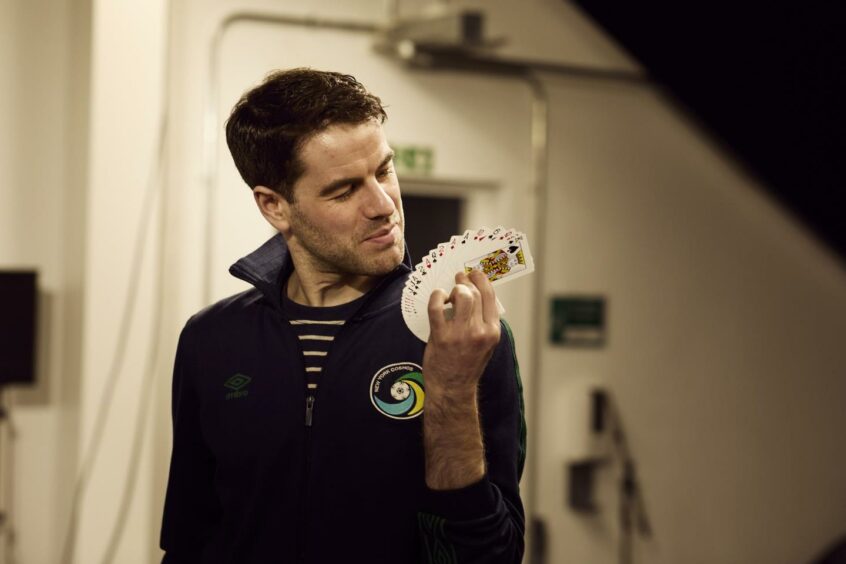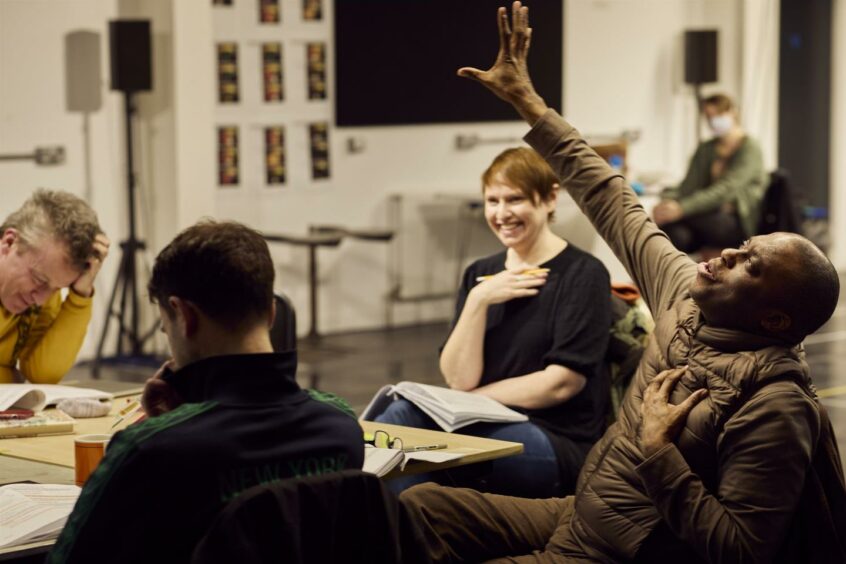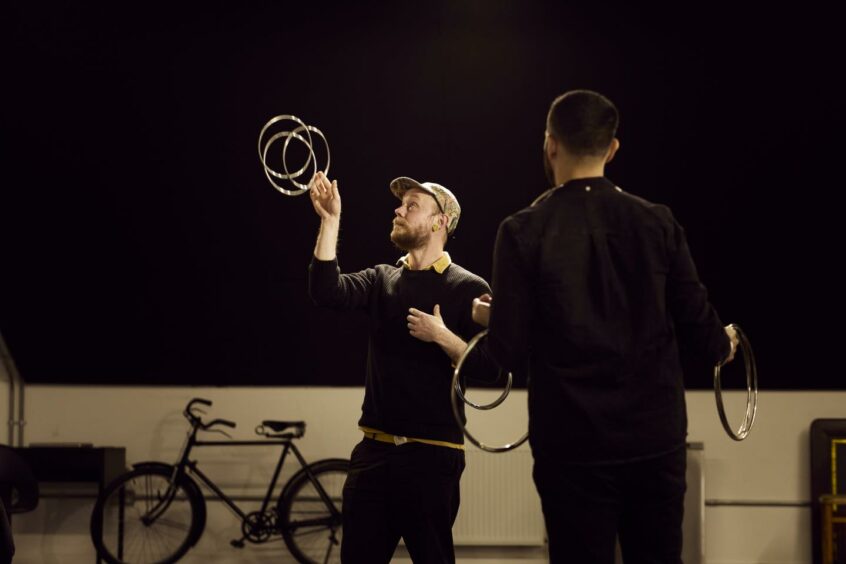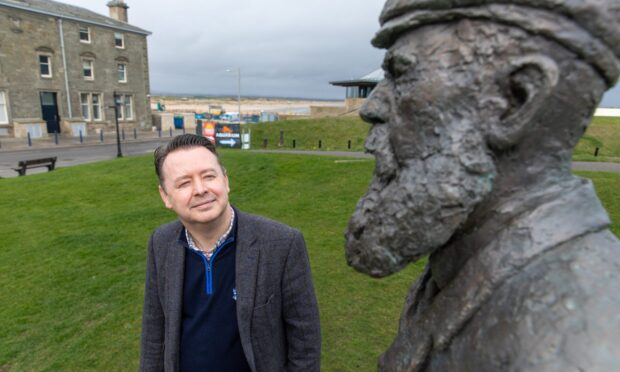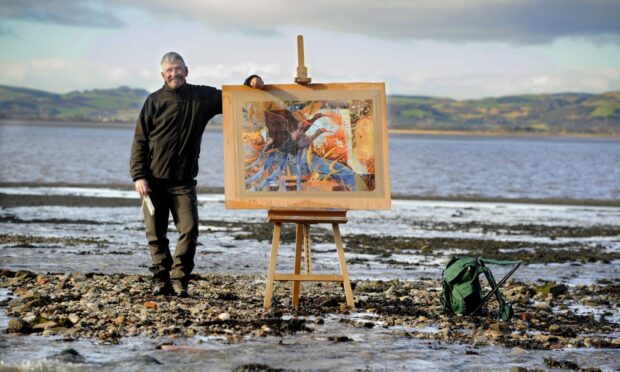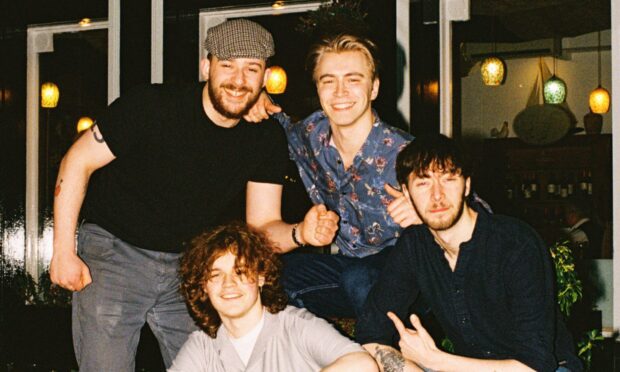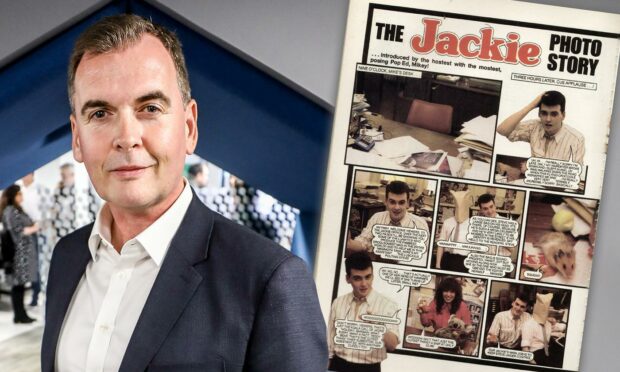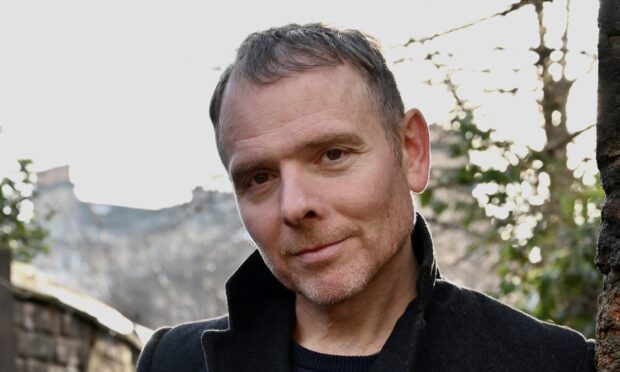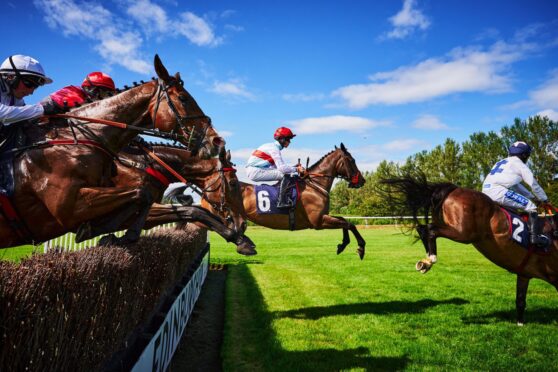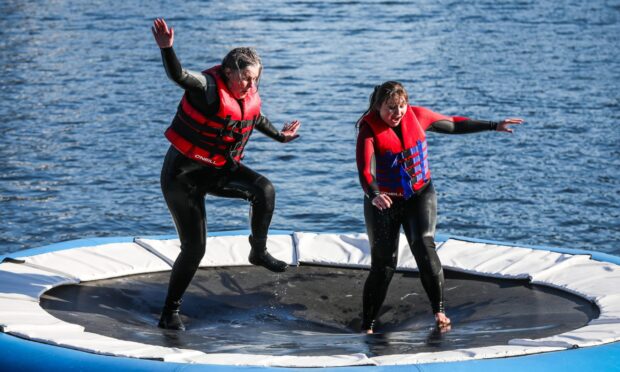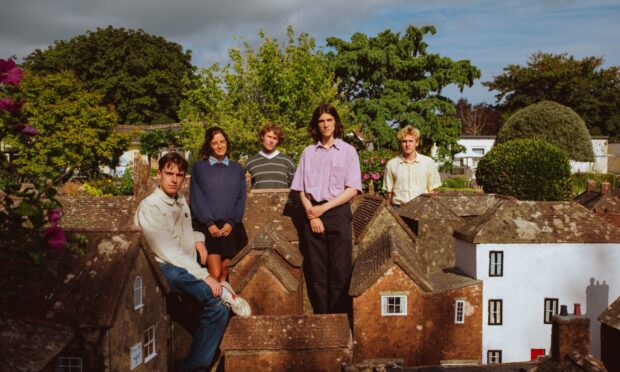“The Roald Dahl magic show,” is how the team behind this brand new production of Dahl’s work is describing it.
This is a mouth-watering prospect for all kinds of reasons.
“Particularly post-pandemic, we wanted to come back with a very theatrical show,” says director Ben Harrison.
“We’re using lots of flying cloths and reveals and illusions, so there’s hopefully a magical element to the production quite apart from the magic that exists within the story itself.
“This magic is integrated, but it never stops and becomes a magic show, it’s always used within the narrative.”
A show for ‘tweenagers’
The Wonderful Story of Henry Sugar is based upon the lead story from Dahl’s 1977 anthology of short stories named The Wonderful Story of Henry Sugar and Six More.
This collection of work is aimed at a slightly older audience than that of his more famous stories, like The BFG and Charlie and the Chocolate Factory.
The original story tells of a man who learns an Indian mystic’s trick for seeing through solid objects, and decides to make himself a lot of money cheating at gambling – until he discovers the meditation required to learn the trick has set his mind on higher things than cash.
“The show is for ‘tweenagers’, as we would say these days, although Dahl wouldn’t have known that term,” says writer Rob Drummond.
A co-production between Perth Theatre, The Roald Dahl Story Company and Helen Milne Productions, the show was first suggested to Harrison by Milne back in 2016.
She suggested that Harrison – who’s the co-artistic director of the Grid Iron Theatre Company, but who’s directing this show as a freelancer – write and direct it himself.
“When she asked I told her I remembered the story, in fact I’ve got a first edition in the house,” says Harrison.
‘A Roald Dahl obsessive’
“I got it as a kid, I was an absolute Dahl obsessive from about the age of six, and actually I was probably a little too young for it at the time, but I reread it when I was the right age and loved it.
“I told her, yeah, I’d love to direct it, but I’ve not a clue how to adapt it for a 21st Century sensibility. I knew exactly who would be brilliant for it, though.”
Stage magic was baked into the concept of the show from the start.
It was an area where Milne had worked in already, having produced magician Scott Silven’s show At the Illusionist’s Table for a number of years at the Edinburgh Fringe.
Performer and writer Drummond, Harrison’s pick to take on the script, has also been fascinated by magic since childhood.
His hit and highly-acclaimed 2012 show Bullet Catch used as its subject the supposed deadliest trick of all.
“Rob is a very interesting theatre maker, and it’s obvious he’s interested in magic from some of his shows, so he was a perfect fit,’ says Harrison.
“We agreed to do it and went forward, and started developing it from the following April (in 2017). We’ve been on a journey with it since then, and now it’s finally happening.”
Magic at its heart
Drummond explains further. “They approached me to adapt the story because they knew they wanted to do it, but they didn’t really know how to do it,” he says.
“I love Roald Dahl, I’ve always wanted to do a Roald Dahl adaption, but I’d never heard of this one – then I read it and realised it contains magic.
“It’s a story within a story, and those two things, the magic and the form of it, really interested me. I thought, well, why don’t we add another layer?
“Now it’s a story within a story within a story, it’s like Inception… I’ve added a new character, a 14-year-old teenage girl named Mary, who’s desperate to become a social media influencer.
“She listens to the audiobook of Henry Sugar, and in that book Henry Sugar reads the story of Imhrat Khan in India.
“So you’ve got three time zones going on – a contemporary one with Mary, Henry Sugar in the 1970s, then yogis and mystics with Imhrat soon after the First World War.”
Harrison says that Henry is a classically outrageous Dahl character.
“He’s kind of unlikable, but adorable at the same time. Imhrat is from one of the lowest castes in the 1930s, so he thinks that fame is the way to get himself out of poverty, through his magic skills.
“Henry is very wealthy anyway, but he’s addicted to acquiring more and more wealth. I’m sure we can think of many contemporary figures who are busy firing rockets up into space while vast sections of the world are dying in poverty.
The allure of wealth
“Henry acquires these powers himself, then he gets very obsessed with them, but the further this young playboy goes into the acquisition of wealth, the less he’s fundamentally drawn to it.
“Then in the contemporary layer with Mary, Rob is very keen to figure out what the currency is now. If it’s not necessarily money, it might well be social media affirmations, which is what Mary really wants.
“Mary has shades of Veruca Salt from Charlie and the Chocolate Factory, but Rob’s very cleverly shown her vulnerabilities.
“I hope the 10 to 15 age bracket will really identify with her, she’s our way in and she roots it to the contemporary moment really, she’s addicted to screens and followers and Instagram culture. Then there are hopefully lots of ‘how on earth did they do that?’ magic moments, I hope.”
He won’t give away exactly what kind of magic tricks are used, but he does say that fame, money and likes are the three narratives driving the story.
“It has these multiple layers to it, but they all go on a parallel but very distinctive journey in terms of their realisation. The further you go into them, actually what you think you’re looking for isn’t quite what you need. Or certainly what’s healthy for living a full life.”
The show stars David Rankin as Henry and Johndeep Moore as Imhrat, with Rosalind Sidney and Dave Fishley in supporting roles.
‘She smashed it’
Mary, meanwhile, is played by a 20-year-old newcomer named Eve Buglass.
“We considered about 90 people for this character, and couldn’t really find the right person through the traditional casting process,” says Harrison.
“During the casting week, I happened to be going to Edinburgh College’s HND course showcase production. Eve walked on, and it was one of those moments – then she gave an audition the next day and smashed it.”
This is Buglass’s professional debut, which he hopes is something like a Willy Wonka golden ticket moment for her.
What we need to be happy
“I hope audiences have a great time,” says Harrison. “I hope they’re wowed by the magic, I hope they identify with all the characters and go on the journey with them, and by the end I hope they reflect on what we want and need to be happy.
Maybe the pursuit of just wanting things for ourselves has brought the world to the situation we’re in now.
“It’s a simple idea at heart, but maybe looking outside yourself, looking around and truly seeing the ones you love and not taking your parents or your loved ones or your children for granted, is one of the keys to living a happy and fulfilled life?
“If you’re less bound up in yourself, maybe amazing things can happen?”
“This show is exactly what I like to do,” says Drummond. “A show that will be first and foremost really entertaining, but with something at least mildly important to say.
“It’s got some smuggled-through meaning about how social media and the internet aren’t evil, it’s just they bring out the worst narcissistic tendencies in human beings.
“It’s also a Roald Dahl magic show. Which, you know… if you don’t get excited by those words, then you clearly didn’t grow up reading Roald Dahl.”
- The Wonderful Story of Henry Sugar is at Perth Theatre until Saturday April 2, then Macrobert Arts Centre in Stirling from April 7 – 10. www.horsecross.co.uk
- There are 100 free tickets for the show on offer for young people from lower income households. More on this here: https://www.facebook.com/HMPtheatre/posts/955481988504652
